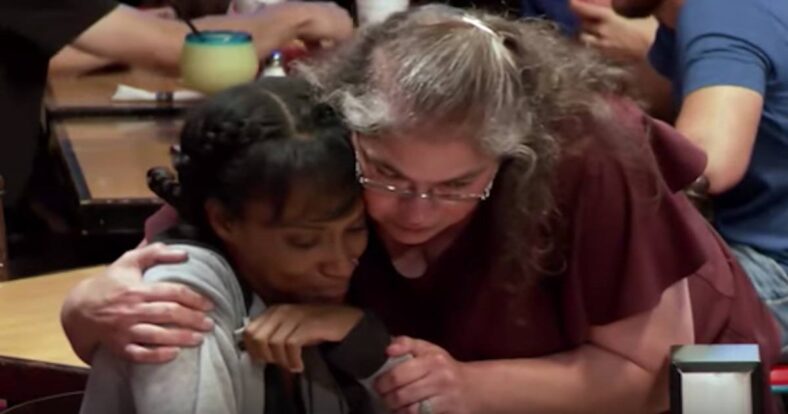
Americans are among the most charitable in the world and it’s most often displayed in small ways and without fanfare. And when ABC’s “What Would You Do?” embarked to see how people would react to a mother in need, the unsuspecting participants did what Americans do.
What Would You Do?
In the experiment for the episode, host John Quinones set up at a local restaurant in Ponchatoula, Louisiana. The three actors — a mother and her two children — are out to celebrate her son’s birthday but can only afford a single quesadilla to share.
As kids often do, not understanding their mom’s already tight budget, they ask if they can get their own meal and possibly splurge on a cake.
Parents who have struggled through hard times financially understand the guilt and shame of wanting to do more for their kids on special days but simply can’t afford to.
Food insecurity
As Quinones points out, 18 percent of Americans live with “food insecurity” every year. And Louisiana is one of the states with the highest number of people living below the poverty line.
While federal programs like the Supplemental Nutrition Assistance Program (SNAP) exist to alleviate childhood hunger, Americans are quick to offer help to the needy in their communities; an indelible feature of a country founded on Christian principles and the belief that charity starts at home.
And, who knows, those giving today could be the ones in need tomorrow.
Pay it forward.
Watching the scene play out from their tables, fellow diners quietly insisted on paying for the family’s birthday meals. But they didn’t stop there. The good Samaritans also offered emotional support and prayers to the “mom.”
One kind woman even went to find the distressed mother in the bathroom and gave her a $100 bill.
“You just pray for me and I’ll pray for you,” she said as she pressed the money into her hand. “And one day you’re going to pay it forward.”
One young woman encouraged the kids to be thankful for what they have and told them sharing food is sometimes what you have to do.
(RELATED: Two Kids Found A Wallet On A Driveway – Security Footage Recorded What’s Now Going Viral)
In every case, those offering help explained to Quinones that they’d been through similar hard times. They recalled what it had meant to them when complete strangers helped them get through difficult times.
Good intentions
That’s not to say well-intentioned strangers don’t sometimes read situations incorrectly. In another “What Would You Do?” episode, one woman’s intention to help turned into a racially charged embarrassment.
Thankfully, once again, Americans stepped in to correct the injustice they were witnessing.
(RELATED: Teen Girls Bully ‘Friend’ for Being ‘Fat’ and Bystanders Can’t Stay Silent)
It’s a great reminder that despite what we may see in the news, Americans are still more inclined to reach out to their neighbors when they see distressing situations than not.
